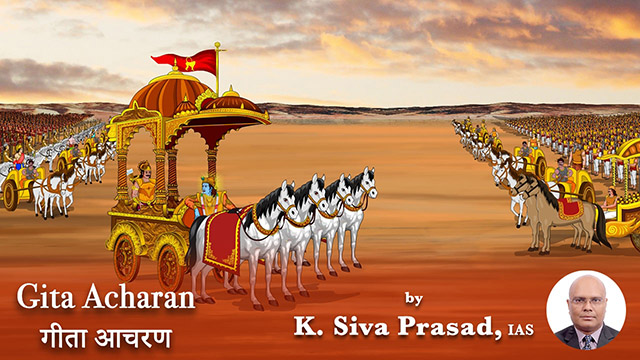
Krishna said that my noble devotees, having obtained Me, are no more subject to rebirth (8.16) which otherwise is the abode of grief (8.15). Understanding 𝙥𝙪𝙣𝙖𝙧-𝙟𝙖𝙣𝙢𝙖 or rebirth is important in this context.
While rebirth is usually interpreted as attaining a new life after death which is akin to its literal translation, it can also be interpreted as the birth of a new situation around us.
Situations keep developing around us on a regular basis which are grasped by the senses with their cognitive biases. When a situation ends, the ripples generated by it in us would give birth to many more situations because of our responses or behaviour. Krishna called this cyclic process an abode of grief. But for those who attained 𝙋𝙖𝙧𝙖𝙢𝙖𝙩𝙢𝙖, these sense inputs disappear like rivers in an ocean. Hence there is no scope to create new situations whereas the existence might continue creating them.
We don't have any control over outer situations but we can change ourselves so that they become powerless and we just become 𝙎𝙖𝙠𝙨𝙝𝙞 (witness). The path for this change is often described as '𝙥𝙖𝙧𝙖𝙢𝙖-𝙥𝙖𝙩𝙝𝙖𝙢' or supreme path. The entrance for this path is '𝙫𝙚𝙚𝙩-𝙧𝙖𝙖𝙜' or free of attachments (8.11) which is shedding both longing and aversion (7.27) to situations and people. The next step is to control the senses, confining the mind in the heart and remembering the Lord (8.12-8.13). Krishna assures that He is easily attainable when this path is followed (8.14).
We try to change the situations and people as we assume that they are responsible for our miseries and blame them. The real change should be within us where the situations or people lose their ability to influence us which in fact is the state of no rebirth.

